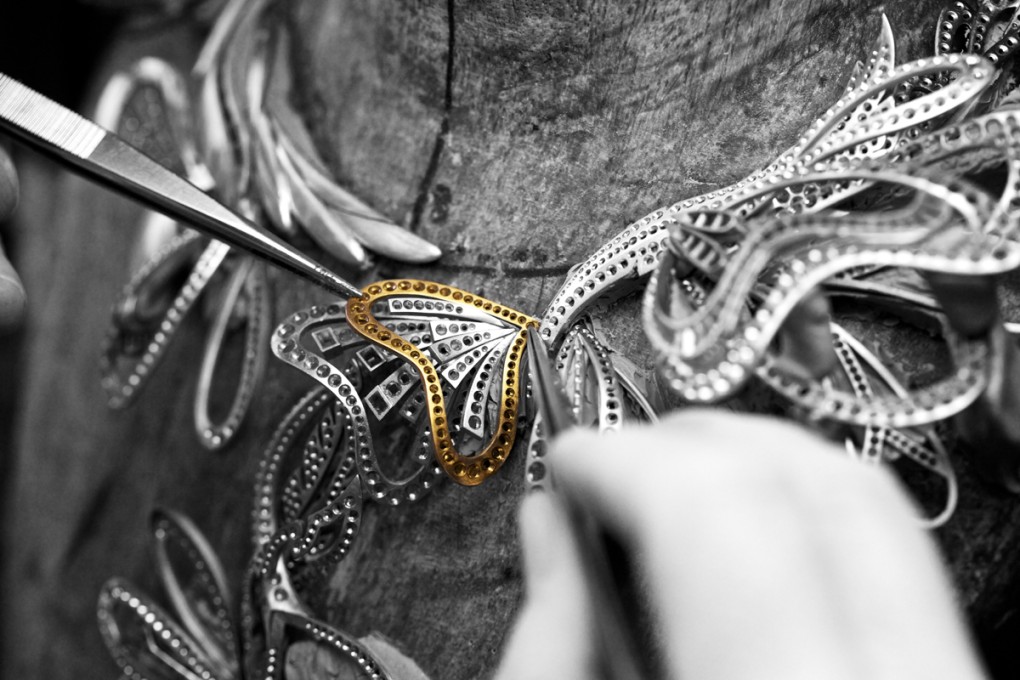Jewellers focus on preserving age-old craftsmanship while reinventing their signature innovations

Through cycles of boom and bust, jewellery has proven to be a buoy of glamour and innovation. But, while designs and materials have evolved, the techniques used in their creation have remained the same age-old methods done by hand and requiring countless hours of a craftsman's skill.
Discovering how to work metals was an important progression for jewellery in ancient times. Today, the same metal-working techniques are used, but they have become more sophisticated with more intricate decoration.
"We have discovered that partly flattening and hammering gold strands creates a delicate sparkling effect, like thousands of diamonds woven into the necklace," says Charlotte Schleifenbaum, jewellery designer and goldsmith at Wellendorff.
The company has focused on mastering gold jewellery since it was founded in 1893. "A lot of our designs evolve from old techniques such as milling and hammering. No machine comes up with new ideas, and that's why we rely on our crafting roots," she says.

One of Wellendorff's signature pieces is the golden rope, which involves braiding gold strands into a chain to make it feel like silk. "Only by using the sensitive fingertips of an experienced craftsman can we produce a piece that looks and feels like this," Schleifenbaum says.
